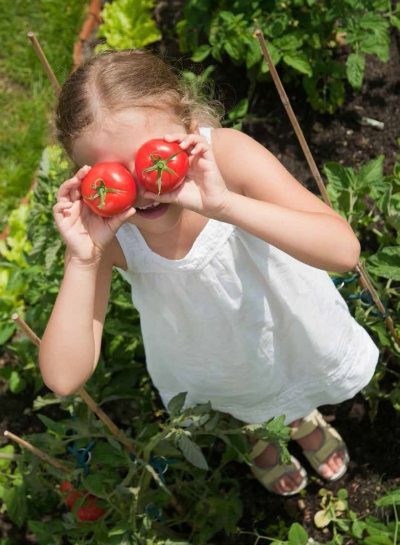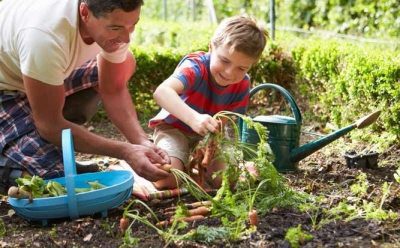I was born in the summer of 1985, and the generation that I so emphatically belong to is one that in many respects was the guinea pig test generation for modern food science. As children, we had a first hand, participatory role in the rise of the processed food market. For many of us, real nutritious foods, like fresh fruits and vegetables, represented a small portion of our overall diet. The other part? Filled with fast food, low-grade microwave dinners, and countless other products designed in a lab by scientists blending food-like substances with chemicals to create a “safe” to eat packaged meal with a ridiculously long shelf life.
These days, it would seem that the easiest thing for us to do would be to blame our parents for providing such innutritious products to their children. But I’m not sure if that is actually the best, and most noble course of action.
When my generation was young, there was little to no evidence that processed food was a hazard to our health. Mix that with fast food and processed foods being so cheap and easy to prepare – that hasn’t changed much. And then compound everything with the fast food dollar menu being born, which completely solidified fast, cheap, and easy meals.
 This all begs the inevitable question: what was a busy, overworked parent to do? However, that was a long time ago, and things have changed indeed. We are now truly seeing the effects such a poor diet can have on one’s health, especially when it comes to children. Today, most of us likely understand the fact that processed foods are unnatural, and that our bodies need real whole food nutrition to stay strong and healthy. So, I think it is time to realize that we have reached an age where ignorance for the sake of saving time and money should no longer be considered acceptable. Most importantly, when it comes to the health and development of a growing child.
This all begs the inevitable question: what was a busy, overworked parent to do? However, that was a long time ago, and things have changed indeed. We are now truly seeing the effects such a poor diet can have on one’s health, especially when it comes to children. Today, most of us likely understand the fact that processed foods are unnatural, and that our bodies need real whole food nutrition to stay strong and healthy. So, I think it is time to realize that we have reached an age where ignorance for the sake of saving time and money should no longer be considered acceptable. Most importantly, when it comes to the health and development of a growing child.
Now, as my generation enters our 30’s, and many of us begin to have children of our own, the negative health consequences of a diet high in processed foods are becoming even more evident. We live in a world fueled by information, and every day we see new statistics that help drive us try to make healthier choices for our own bodies. We can read the fact that in 2012, 29.1 million Americans (9.3% of the population) had full on diabetes. This disease is becoming prevalent in developed countries, and this number consistently rises about 1% every two years. Nearly 25,000 children are newly diagnosed each year (Source: National Diabetes Statistics Report, 2014). These numbers help keep diabetes comfortably within the top 10 causes of death in our country each year.
After learning that, we may stumble upon another website, such as the one for the Center for Disease Control (CDC), reporting that “childhood obesity has more than doubled in children, and quadrupled in adolescents over the past 30 years.” In 1980, 7% of children 6-11 years of age were obese, and that number jumped to 18% in 2012, and a similar increase in adolescents (12-19 years old) where the number jumped from 5% in 1980 to 21% in 2012. Now, they consider more than one-third of children and adolescents as overweight or obese. There is also much published data on childhood obesity being a leading cause of a whole list of health problems as these children grow older.
It’s clearly evident that something needs to change. So, as a generation, we read these numbers, and many of us get an unsettled, almost sickening feeling as we think to ourselves – how could anyone let this happen? Not only that, but what can we do to change this trend?
The bottom line is that children who are obese are likely to still be obese as adults, and will be more at risk to develop health problems such as heart disease, diabetes, and many types of cancer. A contributing factor to childhood obesity, along with lack of physical exercise, is the heavy consumption of processed foods. If ignorance is the villain that got us into this mess, then information and knowledge shall be our first weapons to fight against it.
It’s of utmost importance to teach children that making health conscious nutritional and dietary choices will help to keep them healthy and fit their entire lives. And I believe that my generation will be the one that can truly make an impact towards positive change. With my generation, we have seen a strong push towards locally sourced foods, organics, farmers markets, less chemical additives, and the slow food movement in general. If we stay true to these movements, and as we begin to have our own children, we can have a positive influence on the next generation, so they will hopefully grow up emulating the same types of food choices that we make.
Naturally, as we begin to create more healthy diets for ourselves, this in turn will impact the types of foods marketed to us and sold in stores. Being consumers, our dollars help shape the products we see in the market place. If we start moving our money away from the processed foods over to the more nutritious, healthy foods the suppliers will notice, and they, in turn, will provide more products of a similar fashion to satisfy demand.
 One of the most encouraging aspects that I see when looking at my generation is that we have created such an awesome popularity surge in home gardening. If a certain food is not available locally, or if we don’t completely trust the provider, we know we have the best solution: to grow our own. Gardening is a foolproof way for us to supply ourselves and our families with healthy, nutritious food for the rest of our lives, or at least until we can garden no more. With a big enough garden, and a plentiful reserve of jars, we can even preserve much of our harvest, and enjoy the bounty year round.
One of the most encouraging aspects that I see when looking at my generation is that we have created such an awesome popularity surge in home gardening. If a certain food is not available locally, or if we don’t completely trust the provider, we know we have the best solution: to grow our own. Gardening is a foolproof way for us to supply ourselves and our families with healthy, nutritious food for the rest of our lives, or at least until we can garden no more. With a big enough garden, and a plentiful reserve of jars, we can even preserve much of our harvest, and enjoy the bounty year round.
A word that instantly comes to mind is self-sustainability. Our love of gardening is also a perfect way to show children, even at an early age, what real healthy foods are, and how they grow. This, in turn, can help them to develop a passion for not only eating fruits and vegetable, but growing them as well.
When gardening with a child it is important to remember to keep it simple, but also to have fun. Children easily lose focus if an activity is too challenging, or just not any fun. Some garden activities that are suitable for participation by children include: planting seeds, watering plants, harvesting fruits/veggies, and even some minor garden maintenance like light weeding, and pruning of dead or unwanted foliage. Letting them help in different aspects in the garden will not only teach them how plants grow, and the healthy hard work involved in growing them, it will also make them feel a rightfully deserved sense of pride in what they have done. As adults (parents or otherwise) it is important that we show excitement and pride with these gardening activities to encourage the child to continue down the this path as both a gardener, and as an individual that makes healthy food decisions more often than not.
I will be honest. I don’t always make the wisest decision with every meal I eat, and I have those cravings for junk food just like anyone else. But the important thing is that I am more conscious of these choices, and I try to make better ones in the future. If we continue to try and not just give up, we can really get the momentum going in a positive direction for the future. We may even help shift the tides just a bit – away from the fast and easy processed world, back to the natural, locally grown, real food side. Back to how people ate for thousands of years, straight from the earth.
This all starts with people supporting local farmers, local farmers markets, and encouraging the growth of more small farms in their area. We need to create an environment in which eating and living healthy is not only promoted, but where it is the norm. And as adults, especially parents of young children, it is our job to work at leading the youth in the direction toward health and preservation so that, when they grow up, the choice to eat healthy will be one of little thought, only action.
Feature image courtesy of Delightful Children’s Books
This article originally appeared in 2015 of Garden Culture Magazine’s UK, Issue 7, under the title, Teach ‘Em Young.
READ MORE FROM THIS ISSUE